High Precision Sheet Metal
Precision sheet metal fabrication is critical in today’s needs for highly-accurate and complex metal components in different industries. This process is highly utilized in robotics, medicine, architecture, automobiles, and other modern technologies and machinery.
With custom sheet metal fabrication, engineers and designers are now even more capable of creating complex metal parts in various shapes, sizes, strengths, and functions. They are best suited for the demanding environments and manufacturing requirements in which these industries operate.
Understanding the numerous procedures, fundamental design principles, materials, and finishes related to sheet metal manufacturing is essential. Each of these elements contributes significantly to making your project shine.
What Is Metal Fabrication?
Custom metal fabrication is an indispensable step in numerous manufacturing processes — their use ranges from toy parts to large-scale aerospace requirements. It is a popular manufacturing process that enables engineers to create their desired parts efficiently and precisely.
Several techniques are available for manipulating sheet metal. However, it is critical to determine which materials and processes are best suited to produce custom metal sheets ideal for different applications. An in-depth understanding of these factors helps you find the best custom sheet metal for your projects.
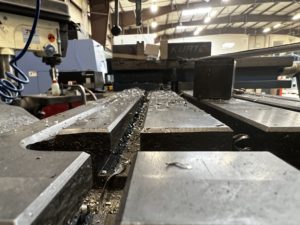
Laser Cutting
One of the most ground-breaking metal fabrication technologies of the 20th century is laser cutting. This method uses a vectorized drawing to produce extremely precise parts. We use precision laser cutting for steel, aluminum, copper, brass, and other metals.
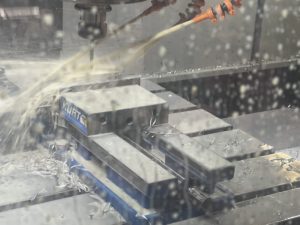
CNC Punching
Using a programmable machine, computer numerical control (CNC) punching is a very dependable way to physically “punch” shapes in sheet metal. The computer generates a precise range of coordinates to punch the necessary form. As a result, both small batch operations and lengthy manufacturing runs can benefit from its accuracy and cost-effectiveness.
Instead of a laser, a punching machine may also quickly and accurately create shaped features and profiles like custom perforated metal sheets.

CNC Press Brake Forming
A CNC press brake machine is a mechanical tool with AI software attached to it for precise and accurate bending of the raw material. An electrical or hydraulic system powers it.
Electric or hydraulic force is used to operate the machine. The force will be applied to the appropriate moving part of your machine, depending on its type. As a result, the desired bend can be produced by pressing the metal sheet against the fixed portion with the moving component.
When using a CNC machine, the device will move the metal sheet following the commands entered into the computer. These results in a desired part with precise bends and high accuracy.
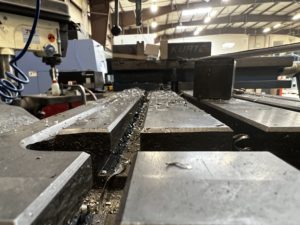
CNC Machining
Modern CNC machines are entirely automatic and managed by written computer code. The cutting heads and the part’s movements, as well as the spindle speed, RPMs, and other common characteristics, are all controlled by the program.
Subtractive fabrication is used in CNC machining services. This explains why the technique is the opposite of additive manufacturing since the material is removed throughout production.
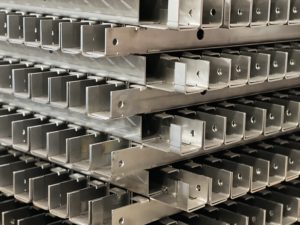
Finishing
Multiple procedures and treatments are available depending on the component and the customer’s needs, each delivering a different level of protection and aesthetics. While some treatments — like alocrom and anodizing — also prevent alloys from oxidizing, others are entirely cosmetic.
Here at CLS Fabrication, we offer fully automated powder coating services to our customers. Non-destructive testing, or NDT, is required by our clients for the components they use. The process checks for hairline fractures that could result in serious component failures.
Benefits of Precision Sheet Metal Fabrication
Custom sheet metal fabrication is preferred in manufacturing various metal components. Industries mainly take advantage of this manufacturing technique’s high-precision and cost-effective results.
Stainless steel, aluminum, and galvanized steel are common materials processed in sheet metal fabrication. This process is ideal for the manufacturer and end-user in concept and application. Its main benefits include the following:
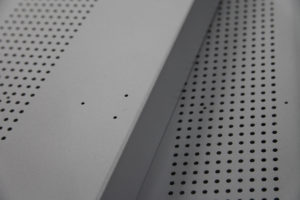
High Precision Parts
There are numerous methods for fabricating sheet metal, including stamping, bending, cutting, blanking, shearing, and laser cutting. While many of these methods can be carried out manually, automated equipment is now frequently used since it produces high-precision designs and parts with the precise tolerances needed by the user.

Custom Design
You can creatively create unique parts and components with sheet metal fabrication. Additionally, sheet metal fabrication can be utilized to develop new ideas for various product designs and applications.
Clients who want to turn their concept product into a reality can collaborate with a business fabricating sheet metal to create functional prototypes that function as closely to the finished product as possible,
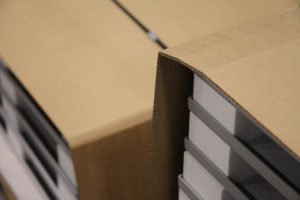
High-Capacity Production
The lead time for sheet metal projects can take up to eight weeks. However, these are done with high capacity and precision, and standard fabrication processes may take longer. Additionally, parts and components manufactured from traditional methods may result in defective or low-quality pieces.
A company looking for fast production in bulk should be working with a precision metal fabricator like CLS Fabrication. You can get a cost-effective service by ordering bulk production. At the same time, precise and high-quality parts make the entire process efficient for both the manufacturer and the client.
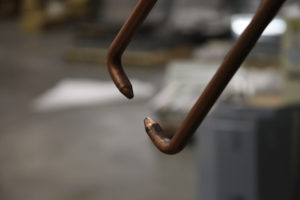
Durable Parts Produced
Sheet metal goods can be produced from steel, galvanized steel, aluminum, cold-rolled steel, stainless steel, copper, or brass. The various qualities of these alloyed metals must be taken into account by manufacturers.
The longer the shelf life of your sheet metal product, the more robust the materials you use. For instance, steel and stainless steel alloys can be recycled numerous times without losing quality. In addition, your spent scrap metal sheets may be recycled into brand-new, premium goods at a refinery facility.
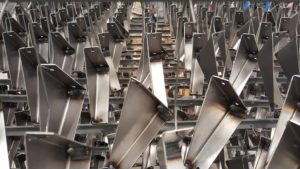
Modern and Clean Finishes
Sheet metals have a contemporary and aesthetically pleasing design that can improve the look of any product, even without any metal coating or surface finishing. Depending on the client’s preferences, various finishing procedures — like sandblasting, polishing, grinding, or brushing — might result in multiple surfaces.
Modern technologies like precision metal fabrication add value to components and parts. Together with the right materials, steel metal goods retain their luster and structure longer.
High Precision Sheet Metal Fabrication Services From CLS Fabrication
As the leading manufacturer and supplier of metal products in Bend, Oregon, CLS Fabrication can help you choose the right materials and the best fabrication processes for your manufacturing needs. Our team offers years of expertise and experience with tried and tested craftsmanship in our mission to maintain quality in all that we do.
We continue to reinvest in new technologies and adapt to deliver consistent client results. We also help clients arrive at production techniques that lead to high-precision goods with modern finishes that are custom-built for their projects.
CLS Fabrication is ready to change the way you do your high-precision sheet metal needs! We offer fiber laser cutting, CNC punching, CNC press brake forming, CNC machining, powder-coating, and welding and fabrication services to clients.
to learn more about our services and offerings! You may also request a quote to address your metal fabrication needs today.
